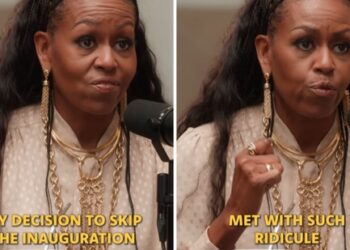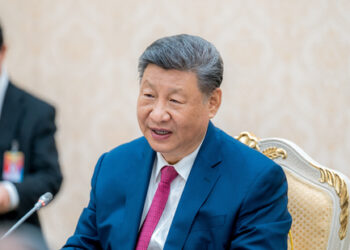In a recent exchange of opinions, German Chancellor Olaf Scholz firmly dismissed Elon Musk’s assertion that only a far-right party can “save Germany.” During a press conference held on Friday, Scholz underscored the importance of democratic discourse, stating that while freedom of opinion extends to all, including multibillionaires like Musk, it does not always align with sound political advice.
Musk, the influential billionaire and CEO of Tesla and SpaceX, took to his social media platform X (formerly Twitter) to assert, “Only the AfD can save Germany,” referring to the far-right Alternative for Germany (AfD) party. This statement garnered significant attention, especially in light of Germany’s upcoming early election set for February 23, following the recent collapse of Scholz’s three-party governing coalition over disagreements on economic revitalization strategies.
In response to Musk’s provocative claim, Scholz remarked, “We have freedom of opinion—it also goes for multibillionaires—but freedom of opinion also means that you can say things that aren’t right and don’t contain good political advice.” He emphasized that Germany’s democratic parties have a different vision for the nation, dismissing the notion that the AfD is a viable solution to the country’s challenges.
Polling indicates that the opposition center-right Union bloc is currently leading, while Scholz’s center-left Social Democrats lag significantly behind. The AfD has been gaining traction, with its candidate Alice Weidel proclaiming in a video response to Musk that her party “is indeed the one and only alternative for our country.” However, despite its strong polling, the AfD remains isolated as other political factions refuse to collaborate with it.
The German government’s spokesperson, Christiane Hoffmann, addressed the implications of Musk’s comments on its presence on X, reaffirming the administration’s decision to maintain its social media presence despite concerns over the platform’s developments under Musk’s leadership. She noted that the government considers it crucial to engage with citizens through significant channels of communication, as withdrawing would disadvantage the government in disseminating important information.
The political landscape is further complicated by Scholz’s recent loss of a confidence vote, which has placed the decision of whether to dissolve parliament and call for an early election in the hands of President Frank-Walter Steinmeier. An announcement regarding this pivotal decision is expected on December 27.
As Germany navigates these turbulent political waters, Scholz’s rebuttal of Musk’s claims highlights the ongoing struggle to uphold democratic principles in the face of rising populism and far-right sentiments. The upcoming elections will be a critical moment for the nation’s future direction and the vitality of its democratic institutions.








 India
India












